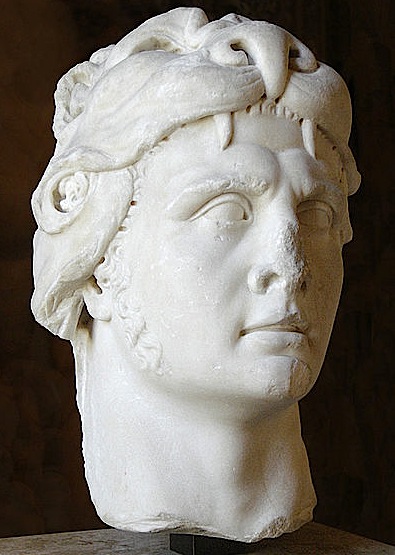The death of Mithridates VI Eupator, the last king of Pontus, in 63 BC marks both the culmination and the implosion of the dream of an independent Pontic state uniting the shores of the Black Sea under one ruler. Born c. 134 BC in Sinop, Mithridates spent his life pursuing his ambition. He probably saw himself as another Alexander but his roots were hardly Greek. He certainly had deep ties with Persia, beginning with his name meaning ‘gift of Mithras’; the kingdom he inherited may have included a stretch of Black Sea coast but was originally very much an inland state. As for Sinop, that foothold on the coast, it was lost to the Romans in 70 BC and later turned into a colony under the name of Colonia Julia Felix. Mithridates’s relentless pursuit of his destiny—which earned him the respect of modern-day Turks who see him as a national hero who put up a stubborn resistance to foreign (i.e. Roman) interference, as much has Atatürk did after WWI with the Greeks—is well known through the works of Appian on the Mithridatic wars and indirectly from Plutarch’s lives of Pompey and Lucullus. His name also crops up in other contemporary sources, such as Pliny the Elder and Celsus. He was clearly a figure larger than life and though he eventually failed, he held for a while in his rule large chunks of Asia Minor, the eastern and the northern coasts of the Black Sea, until he was defeated and committed suicide. He had already become a legend in is own lifetime, which goes some way to explain why he was honoured with a monument in Delos. It is thought that the Greek priest Helianax saw him as the right character to exhibit in order to improve the cosmopolitan feel of the sanctuary.

Mithridates was known not only for his military achievements: he pursued many sidelines. One does wonder how he found the time to take an interest in his six wives (the first one being his sister Laodicea, a choice expressing a very Persian concern with the purity of the line) and numerous concubines. Mithridates was a linguist and prided himself on being able to address each of his subjects in his or her own language. According to Pliny, that required a total of 22 different languages. He also had a fixation on poisons—and quite rightly so. He had witnessed his own father, Mithridates V, succumb to poison at a banquet. Poison or the fear of poison was common in antiquity. So he set about looking for a remedy, and as prevention is better than cure, he hit on the idea of taking regular sub-lethal doses to make himself immune. Celsus thought this method worth including in his publication on medicine. Moreover, in his quest for an antidote Mithridates made his name in the field of botany (a couple of plants are named after him). Pliny himself, however, did not think much of his universal antidote made of dried walnuts, figs and rue pounded together with a pinch of salt, nor of the enhanced version with 54 different ingredients.
After a spell in the wilderness at the end of the Classical era, Mithridates re-emerged as one of the illustrious men whose fates Boccaccio wrote about in the early 14th century. At the beginning of the 17th century an unknown Italian cleric composed a tragedy about him; this found its way to the French court and eventually inspired Racine. His Mithridate, a tragedy of love, jealousy and treachery, was a hot favourite with Louis XIV; the Mithridates Riding to Battle with his Concubine Hypsicratea, which Antoine Paillet painted at Versailles in 1642, is probably no coincidence. Racine’s work was translated into Italian by Parini and Alessandro Scarlatti put it to music. The première was held in Venice in 1707. After that, libretti and operas on the tragic king multiplied. There were some 25 of them floating around when Mozart set about writing his own Mithridates King of Pontus in 1770. It was his first opera seria and was an instant success. He was barely 14.
Paola Pugsley’s Pontic Provinces of Turkey will be published by Blue Guides as an ebook later this year. Her Blue Guide Southeastern Turkey and Blue Guide Eastern Turkey were published last year. See here for details.






